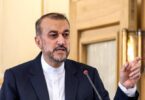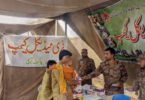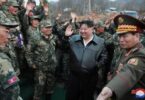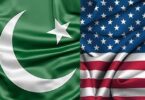Afghan Peace Conference was held at Burbhan in Murree in which 57 delegates from 18 political parties and groups from Afghanistan participated. The noteworthy participants were GulbadinHikmatyar, KarimKhalili and Ustad Atta Noor. Speaking at the inaugural session of the peace conference, Foreign Minister Makhdoom Shah MehmoodQuershi reiterated Pakistan’s commitment to the ongoing peace process to achieve a political settlement of Afghanistan. He said that peace and stability in Afghanistan is not only vital for its neighbours but for the region as a whole. He made it clear that it is for the Afghans to lead the peace process and assured Pakistan’s positive role in it in addition to continued efforts for the reconstruction of this war torn country.
Diplomatic efforts have gained momentum for seeking a political settlement of Afghanistan. Russia has hosted international peace conference and has succeeded to bring representatives of the Taliban and sitting Kabul government across the table in Moscow on one occasion. It was an attempt to initiate and intra-Afghan dialogue. Several rounds of peace talks have been held between the US Special Representative for Afghanistan ZalmayKhalilzad, MsAllice Wells Principal Deputy Assistant Secretary of State for South Asia and Central Asian Affairs and between Taliban leaders. However, the Taliban leadership has not changed its rigid stance and still refuses to hold talks with President Ashraf Ghani government, which is one of stakeholders in the Afghan conflict. The Talban insistence on the withdrawal of US troops without taking other stake holders on board is not a pragmatic approach. The entry of ISIS in the Afghan war theater and the swelling number of its fighters to over 10000 depicts a grim future scenario as a unilateral withdrawal of US-NATO forces from Afghanistan will set the stage for next round of more dangerous civil war. It may make Afghanistan a battle ground for the clash and solace of several forces on its soil. That is why the neighbouring country Iran, which has cultivated friendly relations with the Taliban while preserving it traditional links with components of Northern Alliance, is opposed to giving dominant role to the Taliban in the future setup in Kabul. Iran’s Foreign Minister JawdZarif in an interview with Indian TV Channel NDTV during his visit of New Delhi in January openly disapproved lead role for the Taliban in future government in Afghanistan. The Taliban leadership must realise the changing ground realities inside Afghanistan.
Russia is worried about the spillover effect of ISIS (Daesh) to the Central Asian and even mainland Russia. In a skillful diplomatic move Moscow hosted second international peace conference on Afghanistan in November last year. It drew delegates from the incumbent government in Kabul, senior officials from the Central Asian Countries and the US. Opening the conference, Russian Foreign Minister Sergei Lavrov eulogized the participation of Afghan leaders and representatives of the Taliban and described the moot as harbinger for creating favourable condition for direct intra-Afghan talks. He cautioned against the threat posed by ISIS in Afghanistan and alleged that this terrorist organisation has relied on foreign sponsors in a bid to turn Afghanistan into a springboard for its expansion in Central Asia. The present ruling leadership in Pakistan is fully cognizant of threat of this terrorist organisation to peace and stability of this region and the government has embarked upon a proactive diplomacy to facilitate a political settlement of Afghan conflict. The Bhurban Afghan Peace Conference is the latest diplomatic move in this regard.






